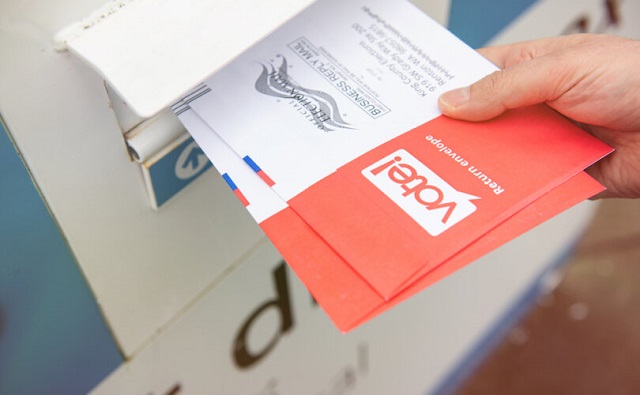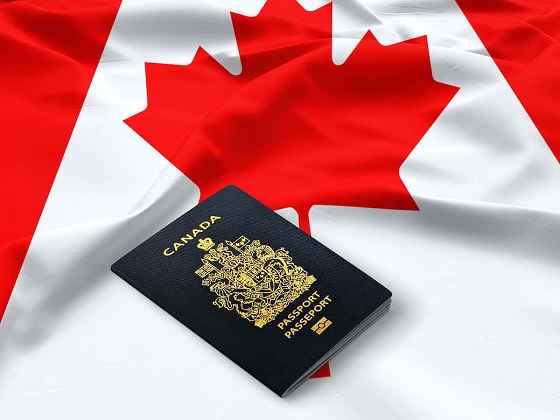Alberta
Albertans endure some of the longest health-care waits in Canada

From the Fraser Institute
By Mackenzie Moir and Tegan Hill
Alberta’s long wait times come despite high levels of health-care spending. The province ranked second-highest on health-care spending per person (adjusted for age and sex) among provinces in 2021
Last week, the president of the Alberta Medical Association sounded the alarm about Alberta hospital wait times, saying they’re as “as bad as we’ve seen it in 25 years.”
But in fact, it’s worse than that.
According to a new study, in Alberta the median wait in 2023 between a family doctor’s referral for a specialist appointment and receipt of treatment was 33.5 weeks—that’s the longest total median wait outside the Maritime provinces and almost six weeks longer than the national median wait (27.7 weeks). And Albertans now wait 23 weeks longer than they did in 1993 when the wait for care was only 10.5 weeks.
Alberta’s long wait times come despite high levels of health-care spending. The province ranked second-highest on health-care spending per person (adjusted for age and sex) among provinces in 2021, the latest year of available data. In 2023/24, health-care spending will consume a projected 41.2 per cent of Alberta’s program spending.
Moreover, Canada itself is a relatively high spender among universal health-care countries, yet ranks poorly on the availability of hospital beds, doctors and key diagnostic technologies such as MRIs. In other words, Alberta is a comparatively high spender and poor performer in an already high spending and poorly performing country.
Of course, there are serious consequences from lengthy delays for medically necessary care including ongoing pain, worsening of health outcomes and psychological distress. Unfortunately for Albertans, the median wait for treatment after seeing a specialist was almost two months longer than what doctors in the province consider reasonable.
The unreasonableness of these waits also varied significantly depending on the specialty. For example, after seeing a specialist, Albertans who needed an orthopedic procedure, which includes knee replacements and spinal surgeries, could expect to wait 40.1 weeks for care—more than 28 weeks longer than what physicians deemed reasonable that year. For those needing care for ears, nose and throat, the wait for treatment was 13 weeks beyond what’s considered appropriate.
Regardless of the specialty, waiting for treatment has become the defining issue for health care in Alberta. And these waits have been increasing since at least the early ’90s. The president of the Alberta Medical Association is right to sound the alarm, but the province’s health-care system has been struggling for years. Albertans obviously deserve better than this, but without a fundamental departure from the status quo they’re unlikely to see any long-term relief from the unreasonable waits they endure for routine care.
Authors:
Alberta
Former senior financial advisor charged with embezzling millions from Red Deer area residents

News release from Alberta RCMP
Former senior financial advisor charged for misappropriating nearly $5 million from clients
On April 4, 2024, the RCMP’s Provincial Financial Crime Team charged a Calgary resident for fraud-related offences after embezzling millions of dollars from his clients while serving as a senior financial advisor.
Following a thorough investigation, the accused is alleged to have fraudulently withdrawn funds from client accounts and deposited them into bank accounts he personally controlled. A total of sixteen victims were identified in the Red Deer area and suffered a combined loss of nearly $5 million.
Marc St. Pierre, 52, a resident of Calgary, was arrested and charged with:
- Fraud over $5,000 contrary to section 380(1)(a) of the Criminal Code; and,
- Theft over $5,000 contrary to section 344(a) of the Criminal Code.
St. Pierre is scheduled to appear in Red Deer Provincial Court on May 14, 2024.
“The ability for financial advisors to leverage their position to conduct frauds and investment scams represents a significant risk to the integrity of Alberta’s financial institutions. The investigation serves as an important reminder for all banking clients to regularly check their accounts for any suspicious activity and to report it to their bank’s fraud prevention team.”
- Sgt. John Lamming, Provincial Financial Crime Team
The Provincial Financial Crime Team is a specialized unit that conducts investigations relating to multi-jurisdictional serious fraud, investments scams and corruption.
Alberta
Political parties will be part of municipal elections in Edmonton and Calgary pilot projects

Strengthening Alberta’s local elections
Alberta’s government is introducing legislation to ensure Albertans can rely on transparent, free and fair elections, and municipally-elected officials have clearer accountability measures.
In a democratic society, Albertans expect their local elections to be free and fair, and their elected officials to be held to account by clear rules that govern their local councils. The Municipal Affairs Statutes Amendment Act proposes amendments to the Local Authorities Election Act (LAEA) and the Municipal Government Act (MGA) to add greater transparency to local election processes and ensure local councils and elected officials continue to remain accountable to the citizens who elected them.
“Our government is committed to strengthening Albertans’ trust in their local governments and the democratic process that elects local leaders. The changes we are making increase transparency for Alberta voters and provide surety their votes will be counted accurately. We know how important local democracy is to Albertans, and we will work with local authorities to protect and enhance the integrity of local elections.”
Local Authorities Election Act
Albertans expect free and fair elections and that’s why it’s important we strengthen the rules that govern local elections. To strengthen public trust in local elections, Alberta’s government will eliminate the use of electronic tabulators and other automated voting machines. All Albertans should be able to trust the methods and results of local elections; requiring all ballots to be counted by hand, clarifying rules and streamlining processes for scrutineers will provide voters greater assurance in the integrity of the results.
All eligible Albertans should be able to vote in local elections without impediment. Alberta’s government will limit the barriers for eligible voters to cast a ballot by expanding the use of special ballots. Currently, special ballots can only be requested for very specific reasons, including physical disability, absence from the municipality, or for municipal election workers. By expanding the use of special ballots, the government is encouraging more voter participation.
Amendments in the Municipal Affairs Statutes Amendment Act would increase transparency in local elections by enabling political parties at the local level. Political parties would be enabled in a pilot project for Edmonton and Calgary. The act will not require candidates to join a political party in order to run for a local or municipal office, but will create the opportunity to do so.
In addition, proposed changes to the Local Authorities Election Act would allow municipalities the option to require criminal record checks for local candidates, thus increasing transparency and trust in candidates who may go on to become elected officials.
Municipal Government Act
The role of an elected official is one with tremendous responsibility and expectations. Changes proposed to the Municipal Government Act (MGA) will strengthen the accountability of locally elected officials and councils. These include requiring mandatory orientation training for councillors, allowing elected officials to recuse themselves for real or perceived conflicts of interest without third-party review and requiring a councillor’s seat to become vacant upon disqualification.
If passed, the Municipal Affairs Statutes Amendment Act will also unlock new tools to build affordable and attainable housing across Alberta. Proposed amendments under the MGA would also create more options for municipalities to accelerate housing developments in their communities. Options include:
- Exempting non-profit, subsidized affordable housing from both municipal and education property taxes;
- Requiring municipalities to offer digital participation for public hearings about planning and development, and restricting municipalities from holding extra public hearings that are not already required by legislation; and
- Enabling municipalities to offer multi-year residential property tax exemptions.
Municipal Affairs will engage municipalities and other partners over the coming months to hear perspectives and gather feedback to help develop regulations.
Quick facts
- The LAEA establishes the framework for the conduct of elections in Alberta municipalities, school divisions, irrigation districts and Metis Settlements.
- The MGA establishes the rules governing the conduct of local elected officials once on council, as well as the overall administration and operation of municipal authorities in Alberta, including any policy those authorities may wish to implement.
Related information
-

 Automotive23 hours ago
Automotive23 hours agoThe EV ‘Bloodbath’ Arrives Early
-

 CBDC Central Bank Digital Currency14 hours ago
CBDC Central Bank Digital Currency14 hours agoA Fed-Controlled Digital Dollar Could Mean The End Of Freedom
-

 Addictions2 days ago
Addictions2 days agoWhy can’t we just say no?
-

 Business1 day ago
Business1 day agoHonda deal latest episode of corporate welfare in Ontario
-

 espionage1 day ago
espionage1 day agoOne in five mail-in voters admitted to committing voter fraud during 2020 election: Rasmussen poll
-

 Brownstone Institute13 hours ago
Brownstone Institute13 hours agoThe Numbers Favour Our Side
-

 Frontier Centre for Public Policy9 hours ago
Frontier Centre for Public Policy9 hours agoHow much do today’s immigrants help Canada?








